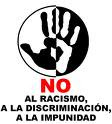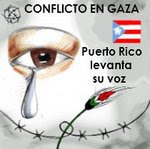Commandos are battling the last few militants at a landmark Mumbai hotel, two days after the start of attacks which have killed at least 144 people.
While almost 100 people were rescued from a second hotel, six bodies were found at a Jewish centre and battles rage on at the Taj Mahal Palace Hotel.
A 29-year-old rabbi and his wife were confirmed as among those killed.
India's foreign minister has said "elements with links to Pakistan" were involved in the attacks on Mumbai.
However, his Pakistani counterpart has urged India not to bring politics into the issue, saying "we should join hands to defeat the enemy".
'Ultimate sacrifice'
As night fell on the Taj Mahal Palace hotel, the landmark building which has become the symbol of the crisis, the BBC's Adam Mynott reported that militants were continuing to hold out.
New explosions and gunfire rang out from the luxury hotel at about 0400 local time (2230 GMT), reports said. Blasts had rung out for most of the day after truckloads of commandos entered the premises.
A journalist and bystander outside the hotel were taken to hospital after being hit by shrapnel.
Indian commandos who managed to enter other parts of the Taj say they found at least 30 bodies in one hall.
JK Dutt, the head of India's elite National Security Guards, told Reuters news agency he suspected two or three gunmen remained inside.
Fighting appears to have ended at the other key flashpoints in Mumbai, chief among them the Oberoi-Trident hotel - where nearly 100 people were rescued and 24 bodies were found earlier on Friday.
But at Nariman House, the Mumbai base of Chabad-Lubavitch, a New York-based orthodox Jewish organisation, the news was grim.
As night fell in Mumbai, the organisation confirmed that Rabbi Gavriel Holtzberg, 29, had been killed alongside his wife, Rivka.
The Holtzbergs had moved to India in 2003 from New York to run the Mumbai branch of the outreach organisation, which offers services and hospitality to Jewish travellers.
In New York, Rabbi Moshe Kotlarsky, of Chabad-Lubavitch, said the Holtzbergs made "the ultimate sacrifice".
The couple's young son Moshe - who will mark his second birthday on Saturday - was evacuated from the building earlier in the day as commandos battled the hostage-takes inside. He is now being cared for by his grandparents.
There was no word on the identities of the others found dead on the premises, but Orthodox Jewish rescuers sent to Mumbai to assist also confirmed that five bodies had been found. Two kidnappers were also reported killed.
Foreign Minister Tzipi Livni said the attack was no coincidence: "The fact that the attack took place at the Chabad house is the clearest sign that the attack was directed against Jews and Israelis."
Death toll rising
The stand-offs began late on Wednesday when gunmen armed with automatic weapons and grenades opened fire indiscriminately on crowds at a major railway station, the two hotels, the Jewish centre, a hospital and a cafe frequented by foreigners.
Indian media have reported that at least 154 people have been killed since Wednesday, with around 370 injured, the vast majority Indian citizens.
An Indian official said the toll could rise much higher.
"Once the bodies are collected, the number of deaths might go up to 200," said Minister of State for Home Affairs Sri Prakash Jaiswal.
Confirmation also came on Friday that a French couple and two US citizens died while eating at the Oberoi-Trident. The US state department said Americans were still at risk in Mumbai.
At least 16 foreigners are known to have died, including victims from Germany, Japan, Canada, Australia, Italy and Singapore. One Briton, Andreas Liveras, has been killed.
But security services said they had killed at least two militants as they freed people from the Oberoi-Trident on Friday morning.
One of those freed, Briton Mark Abell, spoke of his delight at seeing several heavily armed soldiers at his hotel door after spending more than 36 hours in his room.
But he was shocked by the state of the hotel. "The lobby was carnage, blood and guts everywhere. It was very upsetting," he told the BBC.
Pakistani 'link'
State home minister RR Patil, speaking outside the Oberoi-Trident hotel, said a total of nine militants had been killed, along with 15 police officers and two commandos.
He said one of those arrested was a Pakistani citizen.
Earlier, the Indian navy took control of two Pakistani merchant navy ships and began questioning their crews after witnesses said some of the militants came ashore on small speedboats.
India's Foreign Minister Pranab Mukherjee said preliminary evidence "leads us to believe that some elements in Pakistan may be connected to these events". But he added that it was too soon to give details.
Pakistani Foreign Minister Shah Mehmood Qureshi responded by saying: "This is a collective issue. We are facing a common enemy and we should join hands to defeat the enemy."
The head of Pakistan's powerful military intelligence agency, Ahmed Shuja Pasha, was due to travel to India to discuss the situation with his Indian counterparts, but will now send a representative instead, reports say.
India has complained in the past that attacks on its soil have been carried out by groups based in Pakistan, although relations between the two countries have improved in recent years and Pakistani leaders were swift to condemn the latest attacks.
But the BBC's Pakistan correspondent, Barbara Plett, says there is a feeling among senior officials in Islamabad that India has acted too hastily in linking the Mumbai attackers to Pakistan.
In the UK, officials denied reports that some of the attackers may have been British citizens of Pakistani origin.
The UK officials said had Indian authorities told them there was no indication so far that anyone shot or in custody was British.
A claim of responsibility for this week's attacks - the worst in India's commercial capital since nearly 200 people were killed in a series of bombings in 2006 - has been made by a previously unknown group calling itself the Deccan Mujahideen.
However, most intelligence officials are keeping an open mind as the attacks have thrown up conflicting clues, BBC security correspondent Frank Gardner says.
Fuente: Story from BBC NEWS:
http://news.bbc.co.uk/go/pr/fr/-/2/hi/south_asia/7754676.stm
Published: 2008/11/28 22:35:47 GMT
© BBC MMVIII
Suscribirse a:
Enviar comentarios (Atom)



















No hay comentarios:
Publicar un comentario